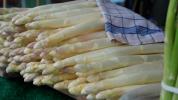Horizon Europe SOSVITI Project: Decision support system for sustainable soil management in viticulture
- Type Project
- Status Signed
- Execution 2024 -2028
- Assigned Budget 1.159.200,00 €
- Scope Europeo
- Main source of financing Horizon Europe 2021-2027
- Project website Proyecto SOSVITI
Soil erosion and degradation pose significant threats to agricultural sustainability, food security, and economic stability. Addressing these challenges requires multidisciplinary approaches that integrate scientific research, stakeholder engagement, and technological innovation.
Funded by the Marie Sklodowska-Curie Actions program, the SOSVITI project aims to develop soil erosion models, understand stakeholder perspectives, and create a decision support system (DSS) for vineyard management.
The project will focus on developing solutions to improve soil health, reduce erosion risk, understand social drivers, and promote sustainable practices. It will emphasize the integration of diverse fields of study and knowledge sharing, utilizing AI, big data analytics, and cloud computing to address the impacts of climate change and promote the conservation of agricultural ecosystems.
Soil erosion and degradation pose significant threats to agricultural sustainability, food security, and economic stability. Despite awareness, conservation measures are often neglected due to barriers such as cost and information gaps. Addressing these challenges requires multidisciplinary approaches that integrate scientific research, stakeholder engagement, and technological innovation. The project aims to develop comprehensive soil erosion models, understand stakeholder perceptions, and create a decision support system (DSS) for vineyard management.
The objectives include developing innovative solutions, improving soil health, mitigating erosion risk, understanding social drivers, and promoting sustainable practices. The project emphasizes multidisciplinary integration and knowledge transfer, leveraging advances in artificial intelligence, big data analytics, and cloud computing to address the impacts of climate change and promote the conservation of agro-ecosystems. The proposal will be developed by nine partners from four European countries, including five academic organizations and four SMEs from diverse backgrounds.
- UNIVERSIDAD DE GRANADA (UGR)







